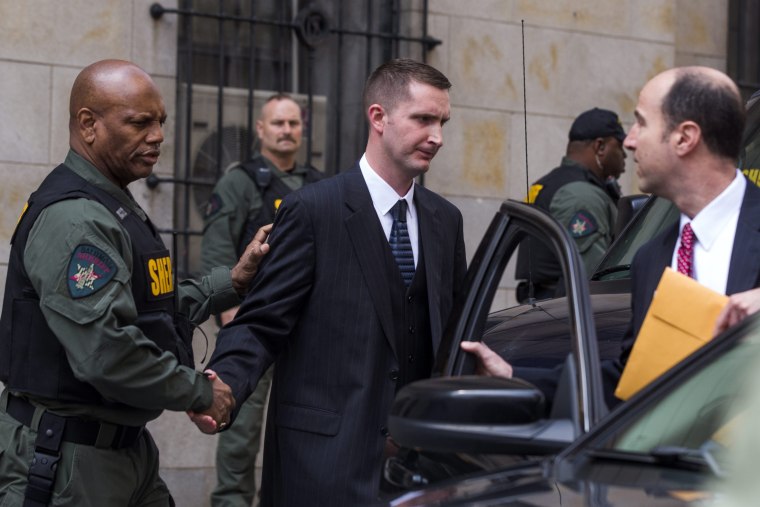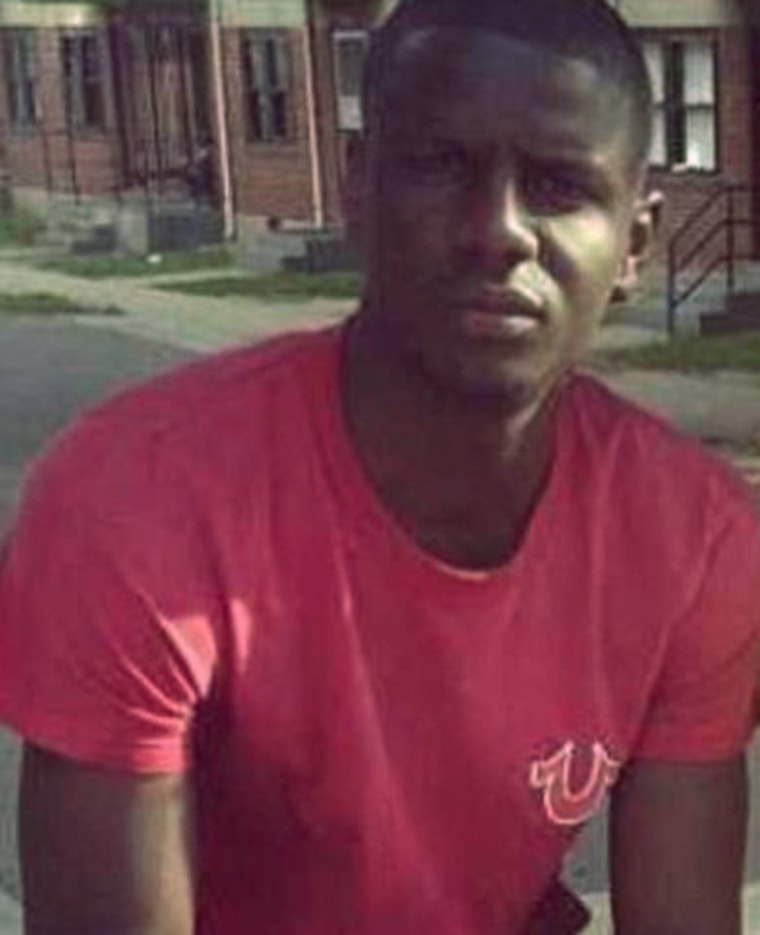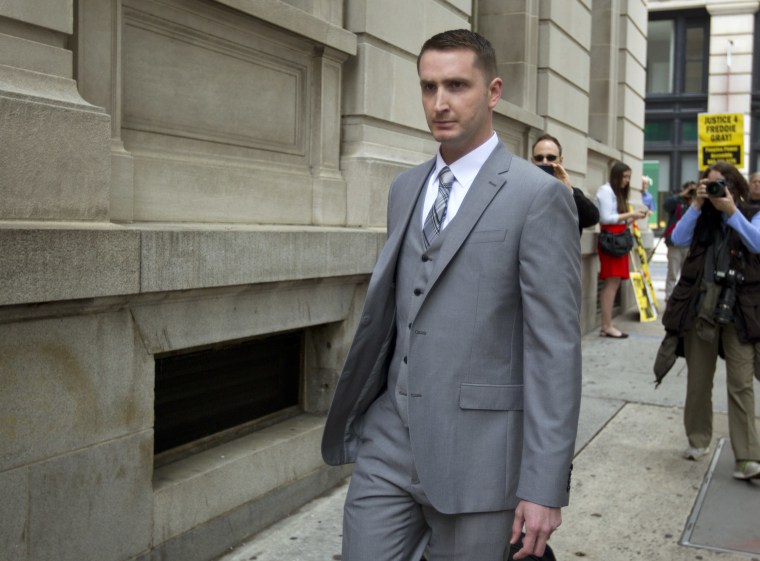The decision by Baltimore police officer Edward Nero and his defense lawyers to stand trial before a judge — not a jury — was a smart legal tactic, legal experts said after he was acquitted Monday in the death of Freddie Gray.
Gray died from spinal injuries last year after he was arrested and put in the back of a police van, handcuffed but with no seat belt. His death touched off rioting in Baltimore and prompted calls nationwide for better police treatment of blacks and other minorities.
Nero was one of six police officers who had contact with Gray on the day of the arrest.

The U.S. Constitution guarantees all criminal defendants the right to a jury trial — but it's a right that can be waived. And under Maryland law, prosecutors have no right to object.
When only the judge hears the evidence and renders a verdict, that's known as a bench trial, named for where the judge sits. Such a proceeding isn't common, but there are times when defense lawyers would rather try the case based on the law, rather than appealing to a jury.
Related: Officer Charged in Freddie Gray Case, Edward Nero, Not Guilty on All Counts
"If you have an overwhelming legal issue that better plays in front of a judge on the law, as opposed to the emotions of twelve people, you will go for a bench trial," said Rene Sandler, a Maryland defense lawyer and former prosecutor.
The Maryland state's attorney charged that Nero and the other officers had no legal basis — no reasonable suspicion or probable cause — to arrest Gray in the first place. Therefore, prosecutors said, the police detention amounted to an assault.
But defense lawyers argue that a policeman cannot be charged with assault for making an arrest — and no court has ever ruled to the contrary.

Maryland Circuit Judge Barry Williams decided that Nero played little role in the arrest and was not responsible for the subsequent failure by other officers to buckle Gray in with a seat belt for his ride to a police station.
"It was a very tactical decision for Nero's lawyers, a very smart move," Sandler said.
The first trial stemming from Gray's death, of Officer William Porter, ended in a mistrial after jurors said they were unable to reach a verdict.
Related: New Trial Date Set for Officer Charged in Freddie Gray Death
A federal appeals court ruled in March that he can be compelled to testify in the trials of the other officers. Prosecutors have granted him a form of immunity to secure his testimony.
The next to stand trial, Caesar Goodson, drove the police van that carried Gray to the police station after his arrest.
He will be tried before a jury in June.
Some legal analysts say the state may reassess the strength of its approach, now that the first two trials have have failed to result in a conviction.
But Rene Sander disagrees.
"I don't think it says anything about the strength or weakness of the cases involving the other officers, but what it does show is that each man stands on their own facts and law applied to them," she said.

